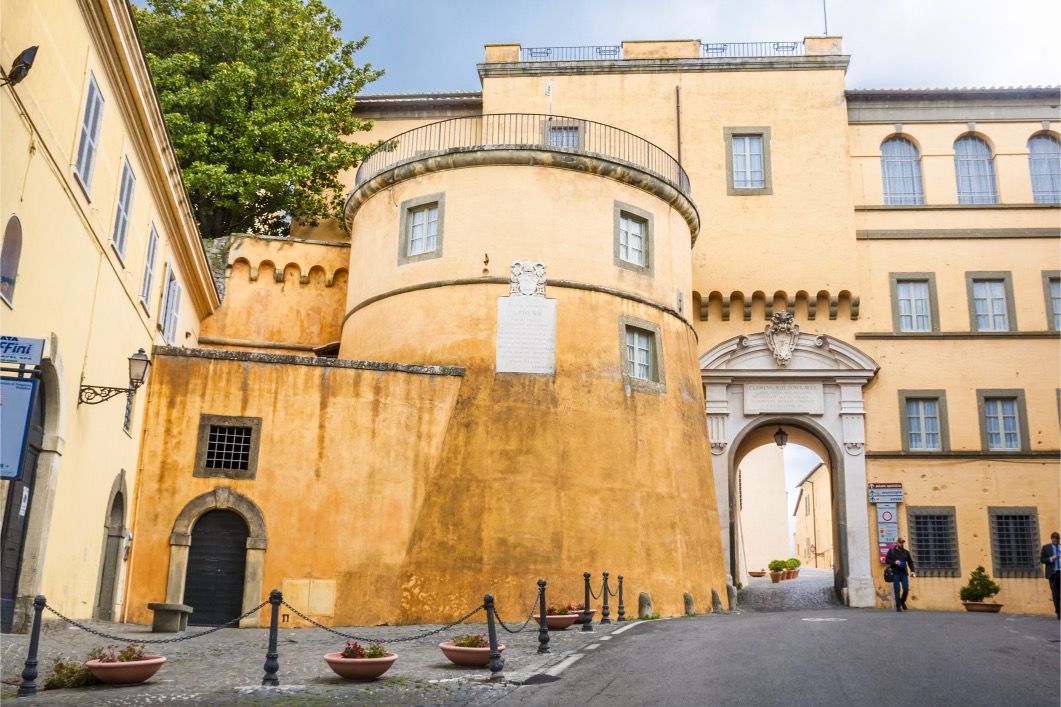If you are familiar with all that’s trending on YouTube, then you may know The Pasta Grannies, a channel with more than 400.000 subscribers where each video is dedicated to Italian nonne and the way they make traditional, delicious pasta dishes. We have nonna Giuseppina and her pici, nonna Giggina and her gnocchi and nonna Rosa with her ravioli, all over 80, all with genuine smiles and all influencers: a breath of fresh air on a platform populated by bad makeup tutorials and drama channels.
We of l’Italo-Americano had the pleasure to share some thoughts and memories with the creator of the project, Vicky Bennison, with whom we spoke about her love for food, the grannies and how Italian she feels, after all this writing about pasta!

Nonna Saras at work, while making fresh pasta for one of The Pasta Grannies’videos (Copyright: Emma Lee)
Vicky explains to us the Pasta Grannies’ YouTube channel is only part of a much wider project that wants to keep alive the hand-making pasta tradition of Italy, a tradition incredibly important for the country, but that has been largely neglected by the younger generations. Bennison’s aim is that of keeping this incredible wealth of culinary knowledge alive by using modern media: YouTube, we said, but also a website and, just a couple of weeks ago, a book, Pasta Grannies: the Secrets of Italy’s Best Home Cooks, published by Hardie Grant Books, a collection of the most popular grannies’ recipes gathered by Bennison through the years.

Anna’s bean pasta: don’t you just feel like to tuck in? (Copyright: Emma Lee)
Time passes, and the risk of seeing all this wealth of knowledge and deliciousness going lost was becoming real. Bennison took upon herself the duty of keeping hundreds of recipes alive and, with them, also the stories, memories and traditional elements they carry within. Hers is an endeavor of love and passion for a country, Italy, she spends half of her time in, but also for the cultural, emotional and affective value of food making and sharing, something she herself knows first hand.

Grannies at work, while making fresh pasta for one of The Pasta Grannies’videos (Copyright: Emma Lee)
In fact, when reading about Vicky, it becomes clear she has a passion for food and the question comes quite naturally: did she have a “nonna” inspiring her, too, or is there something different behind it? “The short answer is my parents were both keen cooks and my mother, aged 87, still is,” Vicky tells us, but alas, her love for food has a much more exotic story to tell, one incredibly close to Italy and to our way to conceive food and cooking.
Vicky was born in Kenya where her parents worked, her father as a researcher and a trainer for local farmers, her mother as an English teacher for the Indian community there. Her childhood had the scents and colors of Africa but the flavors of India, of “the Gujarati and Goan dishes the parents of my mother’s pupils taught her to cook.” In Botswana, during her teens, growing and eating food became a matter of conviviality, as it is typical for the people of Africa and, of course, of the Mediterranean, as she recalls on Heated Magazine: “ Growing up, food for me wasn’t merely nutrition or fuel, it was family, community, and everyday adventure.”

A delicious dish of homemade pasta from Vicky Bennison’s Pasta Grannies (Copyright: Emma Lee)
Without a doubt, many Italians will find themselves in these words.
As an adult, her job brought her around the world a lot, so she came into contact with the food of many a country, yet, her ties with Italian food remained somehow deeper, because they came from childhood, as she tells us: “I first tasted spaghetti with tomato sauce in Venice, aged 5 – my parents were going home on leave from Kenya to the UK by boat, as flying was too expensive… with the Lloyd Triestino lines.”

Nonna Giuseppina, 97, smiles for the camera while making her delicious pasta (Copyright: Emma Lee)
And maybe that’s why she ended up with a home in le Marche, where she noticed how “it was only older women who made pasta by hand on a daily basis. Those over 80 years old are the last generation who would do it to put food on the table. For younger generations, making food by hand became a choice.” That’s when she had “two thoughts: first, I wanted to make a record of these women’s skills. Second, doing that would also mean celebrate older women, who are often invisible in the food media.”
It is evident, from Vicky’s words, that the whole idea behind The Pasta Grannies is not only that of showing how to make food, but also that of entrusting a true wealth of culinary tradition to the next generation. We ask Vicky how important this aspect of the project is: “It’s very important to inspire people to cook from scratch. It’s the details which get lost if you reply on a book or a memory. Traditions survive because you create new memories and pasta works well because it’s a team or a family activity.”

They are skilled hands, those of the grandmothers of The Pasta Grannies project, who are capable of creating tradition (Copyright: Emma Lee)
And of course, the nonne, these valiant, strong octogenarians who have memories of the war and of times when making pasta from scratch was the norm, are the gold and the diamonds of Bennison’s work. We had to ask her how working with them is and if she has some interesting stories to share about them with us: “The nonne, especially those over 90 — and we have a few! — remember times when the world was a very different place. We have the story of 97 years old nonna Giuseppa, which is fascinating and could appeal to those among the younger generation who are into recycling and reducing waste. She is from Sardinia and she worked all her life as a tailor specialized in traditional costumes. She adored her work so much, she never really thought about getting married. When she eventually did she was in her 30s, which was very unusual. She made her own wedding dress and a coat to go with it. The coat, she refashioned twice and she still wears it today as a jacket, over 60 years later.”

Egg pasta (Copyright: Emma Lee)
Indeed, there is so much we could learn from our nonne.
As mentioned, The Pasta Grannies project now works on three different platforms: a website (www.pastagrannies.com), a YouTube channel, and a recipe book, which came out in the US on the 29th of October. The book is a beautiful volume, enriched by photos of the dishes and, of course, of the nonne who made them, but putting it together wasn’t a simple task, especially when it came to selecting the recipes to include: “We wanted variety from all over Italy, and a range of difficulty, but we tried to include more easy than difficult ones!”
Before concluding our lovely chat, we must ask Vicky about her relationship with Italy. She’s been dividing her life between le Marche and the UK for years now an she works with Italians: did she pick up any peculiar Italian habit? “My husband would say parking the car boldly! Aside from that, going direct to the producer for cheese, wine and all the products. Provenance is important for Italians and for me, too.”





























